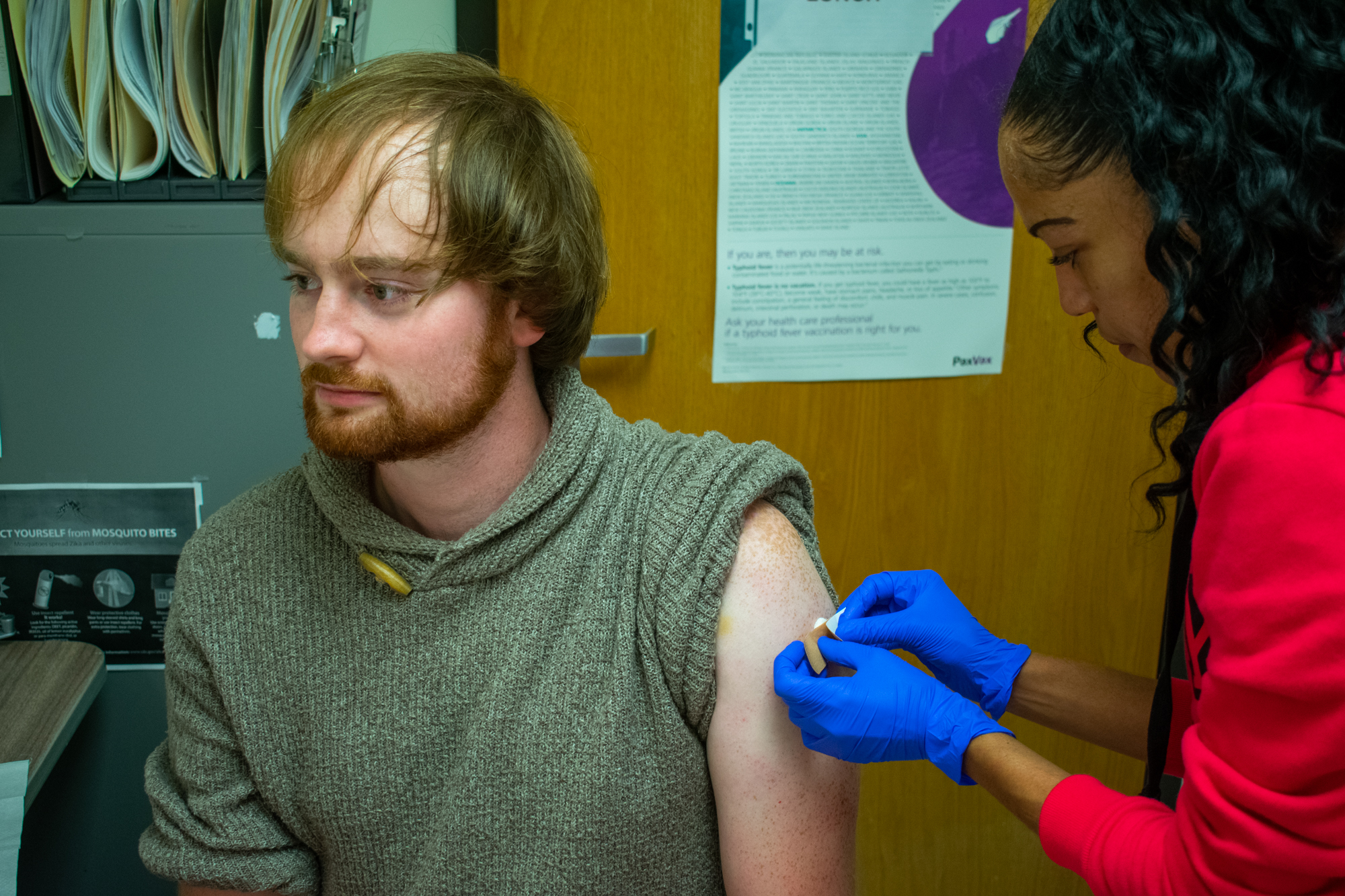Views expressed in opinion columns are the author’s own.
The coronavirus pandemic has depleted America’s health resources, with many hospitals and health centers running out of space for the influx of critical-need patients. With the added pressure of flu season approaching, hospitals are gearing up to take on two diseases at once, both of which are highly contagious and potentially lethal.
However, unlike the novel coronavirus, the flu has an approved vaccine that can prevent the possibility of a coinciding health crisis. Taking only seconds to complete, flu shots are offered at nearly any pharmacy or health center in most U.S. cities, making it fast and easy to achieve immunity.
Less than half of all college students routinely get a flu shot, whether or not they believe getting vaccinated is important. And on a campus as large as the University of Maryland’s — which is already facing challenges from the coronavirus pandemic — getting the flu shot is more important now than ever before.
Vaccines only work if as many people as possible receive them — herd immunity is the idea that if enough people have antibodies protecting them from an illness, it is more difficult for that illness to spread throughout the population. The coronavirus has been able to whip across the globe so quickly because no one had any immunity.
With winter approaching, the flu will begin to make its rounds, especially in crowded locations like college campuses. More people getting vaccinated will likely translate to lower spread during flu season, which will help ease the burden on hospitals already struggling to handle the surge of coronavirus patients.
The flu often gets a reputation of being a nonlethal disease that is comparatively far less serious than other related viruses. But the flu is cause for major public health concern, having hospitalized nearly 490,600 Americans from 2018-19 alone. Of these hospitalizations, 34,200 people died as a direct result of the flu. With the added threat of COVID-19, hospitals are more likely to overflow at an accelerated rate this flu season, having to support double the patients. Though college students aren’t likely to be hospitalized with the flu, their vaccination would help decrease the chances of hospitalizations among immunocompromised people and the elderly.
To make the vaccine even more accessible to students, the university recently announced the start of flu-palooza, a week-long event that begins on Monday where students with valid health insurance can receive a free vaccination on the campus. This event will take place primarily at the University Health Center.
With this event, the university is taking a positive step toward greatly increasing the number of college students who get vaccinated, taking some of the stress off of local health departments.
Students should make getting a flu shot a priority and take full advantage of the easily accessible event. Not only are you protecting yourself, but you’re also doing your part to help control this ongoing public health crisis.
Gabriella Kurczeski is a junior English and psychology major. She can be reached at gkurczes@terpmail.umd.edu.



